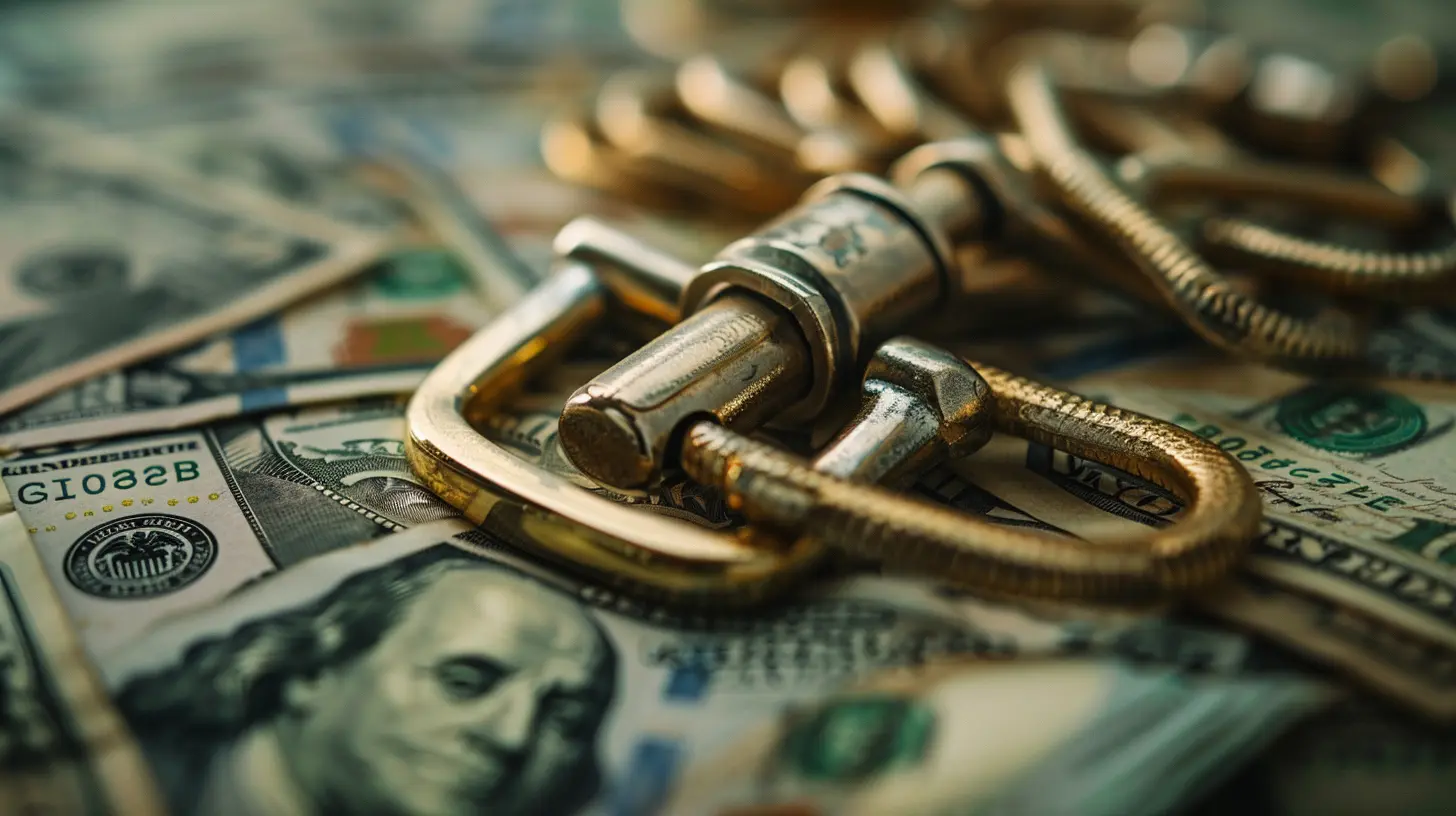How to Avoid Common Scams in the Foreclosure Market
22 August 2025
If you're looking into buying a foreclosed home, chances are you're hoping to score a great deal. And why not? Foreclosures often sell below market value, making them an attractive option for savvy buyers and real estate investors. But here’s the catch—this market is also a magnet for scammers.
The foreclosure game is loaded with pitfalls that can trap the unprepared. From fake sellers to bogus closing costs, the scams are endless. This guide will walk you through the most common foreclosure scams and, more importantly, how to dodge them like a pro. 
1. The Fake Foreclosure Listing Scam
Imagine scrolling through a real estate website, spotting a dream property, and thinking, “This is too good to be true.” Well, it probably is.🚨 How This Scam Works
Scammers create fake foreclosure listings, sometimes even using real property details stolen from legitimate sources. They lure buyers in with unbelievably low prices and pressure them into making quick payments—often in cash or via wire transfers that are untraceable.✅ How to Avoid It
- Verify the listing – Check if the home is truly in foreclosure by looking it up on official county records.- Work with a reputable agent – A licensed real estate agent can confirm whether a listing is legitimate.
- Avoid upfront payments – Never send money to someone you've never met in person or without seeing proper documentation.

2. The "We Can Save Your Home" Scam
If you’re a distressed homeowner facing foreclosure, be wary of offers promising to "save" your home for a fee.🚨 How This Scam Works
Scammers pose as foreclosure "rescue" specialists, convincing homeowners they can negotiate with lenders to stop foreclosure. In return, they demand upfront payments. Once they get the money, they disappear—or worse, they convince homeowners to sign over their property.✅ How to Avoid It
- Never pay upfront fees – It's illegal in many states for "foreclosure consultants" to charge fees before providing services.- Contact your lender directly – Many banks have foreclosure prevention programs. Talk to them instead of an unknown third party.
- Consult a housing counselor – The U.S. Department of Housing and Urban Development (HUD) offers free counseling services to help distressed homeowners.

3. The Bait-and-Switch Loan Scam
This one plays out like a bad movie plot. You think you’re refinancing your home, but in reality, you’re signing away ownership.🚨 How This Scam Works
A scammer convinces a struggling homeowner to refinance their mortgage, offering better loan terms. The catch? Hidden in the fine print is a sneaky clause that transfers ownership of the home to the scammer.✅ How to Avoid It
- Read every document carefully – If a lender refuses to let you review documents, walk away.- Have a real estate attorney review the contract – A professional can catch any shady clauses.
- Be wary of pressure tactics – Scammers push homeowners to sign quickly. Take your time!

4. The Fake Government Program Scam
If someone claims they can get you foreclosure assistance through a government-backed program—be skeptical.🚨 How This Scam Works
Fraudsters pose as officials from government agencies like HUD or the Treasury Department. They claim they can help homeowners secure foreclosure relief—for a small fee. They may even create fake websites or official-looking documents to appear legitimate.✅ How to Avoid It
- Know that real government programs are free – Any program charging a fee is a red flag.- Verify with official sources – Visit HUD’s website to check for real foreclosure assistance programs.
- Never share personal info – Scammers often ask for Social Security numbers and bank details to commit identity theft.
5. The Rent-to-Own Scam
You see a foreclosure listing with a tempting rent-to-own option—low upfront costs and an easy path to homeownership. But things quickly go south.🚨 How This Scam Works
Scammers pose as landlords, offering a rent-to-own deal on a foreclosed property. They collect rent payments, often without actually owning the home. Eventually, the real lender or bank evicts the unsuspecting tenant.✅ How to Avoid It
- Confirm property ownership – Check public records to verify who owns the home.- Use a legitimate lease-to-own contract – Consult a lawyer before signing anything.
- Beware of "too good to be true" deals – If it sounds sketchy, trust your gut.
6. The Phantom Help Scam
This scam preys on desperate homeowners by offering legal services that never materialize.🚨 How This Scam Works
A scammer pretending to be a lawyer or legal expert offers foreclosure defense services. They charge hefty fees but do little to actually help. Some even drag out the process just to collect more payments.✅ How to Avoid It
- Verify credentials – Check if the lawyer is registered with your state’s bar association.- Avoid paying in cash – Legitimate legal services usually accept check or credit card payments.
- Ask for client references – A real lawyer won’t hesitate to provide proof of past successful cases.
7. The "Surplus Funds Recovery" Scam
After a foreclosure, scammers may come knocking, claiming they can help you recover surplus funds from the sale—if you pay a fee.🚨 How This Scam Works
When a foreclosed property sells for more than the owed amount, the previous homeowner might be entitled to surplus funds. Scammers track down former homeowners, claim they can retrieve the money, and demand a cut—sometimes up to 50%.✅ How to Avoid It
- Check with the county clerk – You can claim any legitimate surplus funds yourself for free.- Never pay upfront for fund recovery services – Scammers love charging fees for something you can do yourself.
- Report suspicious claims – If someone contacts you about surplus funds, verify with local authorities.
8. The "Straw Buyer" Scam
If someone offers to help you buy a foreclosed home through shady means, run—don’t walk—away.🚨 How This Scam Works
Scammers recruit "straw buyers" to use their credit to purchase foreclosed homes. They then promise a quick resale for profit. The catch? The scammer takes off with the loan money, and the straw buyer is left on the hook for the mortgage.✅ How to Avoid It
- Never let someone use your credit – If someone offers a sketchy real estate "investment opportunity," be cautious.- Avoid quick-flip promises – If it sounds too easy, it’s probably illegal.
- Consult an attorney – A real estate lawyer can help ensure you’re not getting involved in fraud.
Final Thoughts
The foreclosure market can offer great opportunities, but it’s also full of traps. Scammers are constantly coming up with new ways to take advantage of buyers and distressed homeowners.The best way to protect yourself? Stay informed, double-check everything, and never rush into a deal. If something feels off, trust your instincts. When in doubt, work with legitimate real estate professionals and attorneys. The last thing you want is to "save" money on a foreclosure deal—only to lose even more to a scam.
Stay sharp out there!
all images in this post were generated using AI tools
Category:
ForeclosuresAuthor:

Travis Lozano
Discussion
rate this article
1 comments
Josephine McDonald
Great insights! Essential tips for navigating the foreclosure market safely.
September 7, 2025 at 3:13 AM

Travis Lozano
Thank you! I'm glad you found the tips helpful for safe navigation in the foreclosure market.


